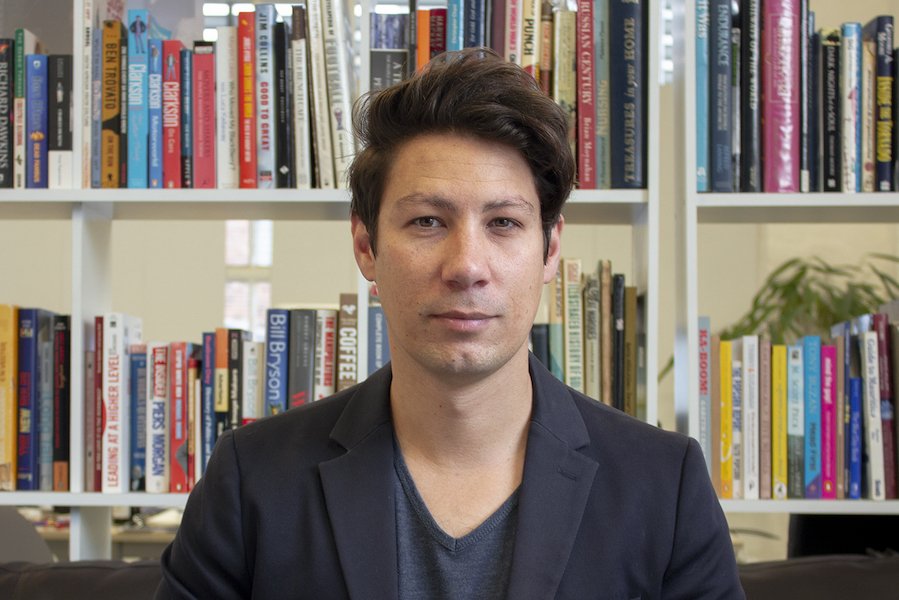Cape Town, South Africa. Danny de Nobrega (Co-founder Kilmer & Cruise Advertising)
Are there still stereotypes that need to be overcome in advertising?
From a business perspective, there is still much of a legacy approach to “creatives” and “suits” where creativity is seen as the sole domain of the former. Everyone is creative and unlocking this creativity in terms of problem-solving, innovating and being more understanding is essential in the complex world we find ourselves in today, and that of tomorrow. As Alvin Toffler said, we need to be able to “learn, unlearn and relearn”.
As for our work output: we still have a long way to go as an industry to become more diverse and inclusive, but there is some amazing work out there breaking down stereotypes. As agencies we need to partner with our clients to ensure those stories truly reflect these brands and companies, hold each other accountable and work hard on identifying and combating our unconscious biases.
What would you change about advertising?
With the scope of advertising having become so broad, I would love to see more people that truly love advertising. The logic and the magic. All of it. The legends, the work and the thinking that came before us. People who understand the fundamentals and pair it with unending curiosity. Far too often we go for the “quick wins” or “best practice” in which there is often very little of substance. The best work I’ve ever been around was made by humble, passionate and curious people with a deep respect for their craft and this crazy industry.
Digital media is leading most budgets. What will happen to traditional media?
Traditional media is currently largely undervalued. There is still a lot of value, trust and equity in these channels and brands that continue to invest in them as part of their overall media plan will continue see long-terms rewards in terms of brand equity and market share. In South Africa, traditional media is still where the most spend is and still delivers great on reach, relevance and effectivity. But with digital media sharply on the rise or leading spend in certain markets and categories, brands should invest in the quality and relevance of their digital communications.
Does traditional media have to further reinvent itself?
Definitely. Although ironically a lot of digital channels evolve into a more traditional buying model as they mature, audience attention does however dictate that traditional channels should continue to innovate. I think the key is to look at where the real value is and amplify that experience for audiences instead of trying to innovate just for the sake of it or to cater to fads and trends.
What is the main ingredient for an effective strategy?
Honesty. Being absolute honest about people’s often irrational behaviours, wants and needs. Being honest about the role and importance of the product or service in the lives of the people that use it and being honest about the actual value or potential perceived value your product or service delivers.
Is South Africa attractive for advertising investment?
I strongly believe South Africa is attractive for advertising investment. Whilst we do have a lot of socio-economic challenges and a low-but-positive industry growth at the moment, there is immense potential to unlock in our country and our people. Our currency allows us to be extremely competitive in exporting world-class work. Our strategic minds and creatives all share that well-known South African grit and we can hold our own against anyone. We’re a nation like no other, and that makes it a goldmine for creativity and advertising.
Could you say that South Africa is the digital industry leader on the continent?
We’re definitely the digital industry leader in Africa thanks to the scale of our bigger, listed companies, local and foreign investment and our infrastructure. We’ve also got a strong startup scene with big successes and exports especially in fin-, med- and ed tech. But we’re by no means the only big digital player on the continent. Kenya pioneered a mobile money revolution through M-Pesa and has been hailed as the “silicon savannah” of Africa. Rwanda is innovating, investing in and rapidly adopting emerging technologies, such as having the world’s first drone airport. The digital technology sector is the second fastest growing industry in Egypt and Nigeria’s low mobile access rates, make both big players with a lot of potential.





